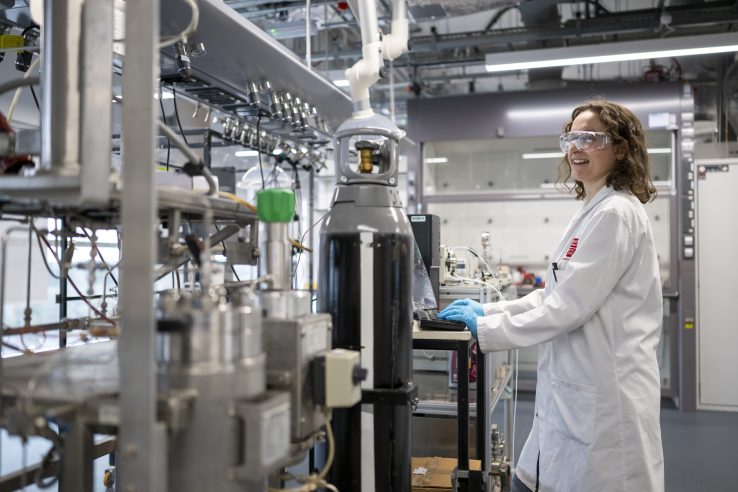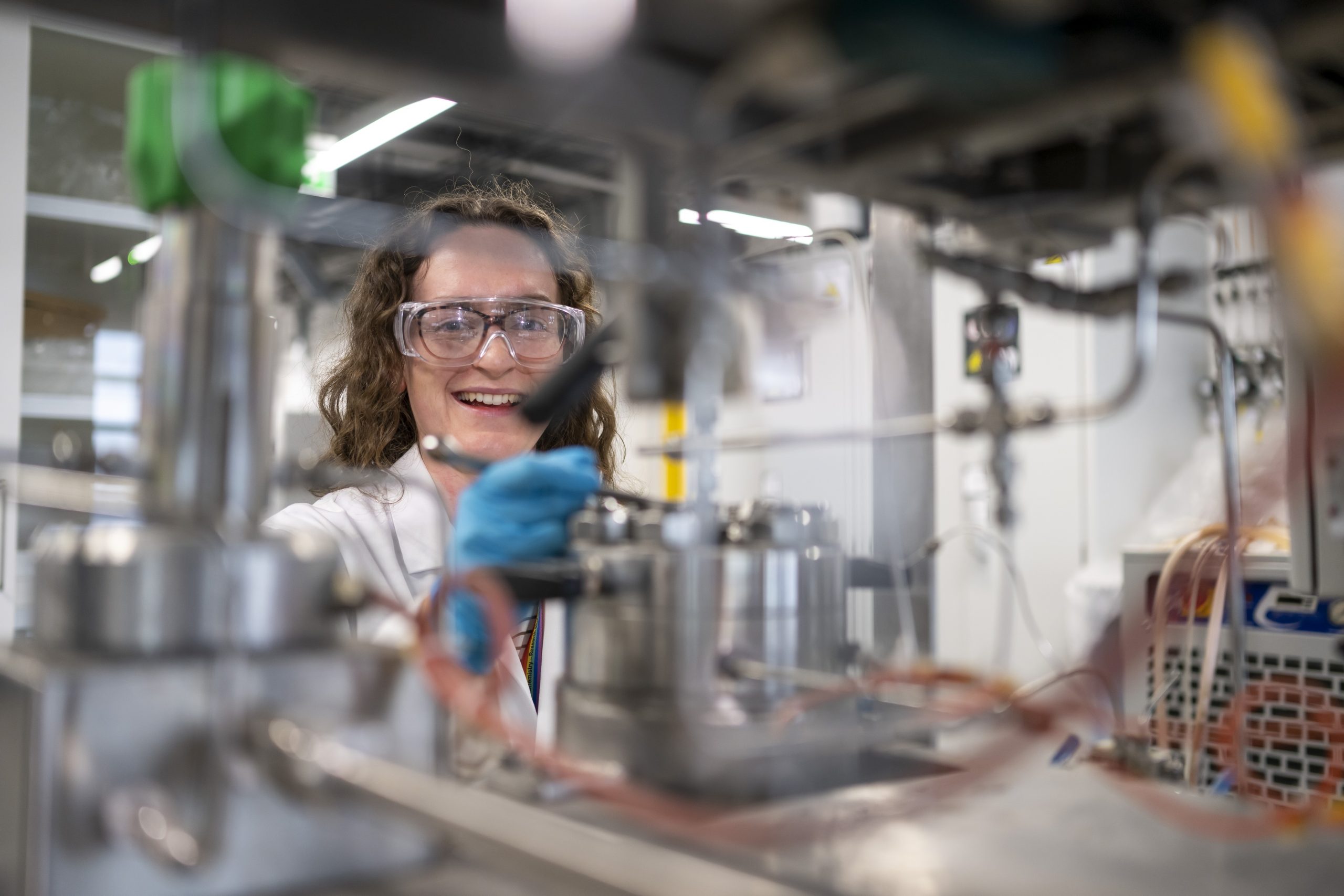Fuelling a renewable transition to Net Zero
30 November 2023
Climate change is the greatest challenge of our age. It is essential to address environmental and socio-economic challenges when envisioning a sustainable world. Immediate plans of action are crucial in defining how we tackle climate change now, and in years to come. In this blog Naomi Lawes discusses her PhD research into future renewable fuels.
Setting net zero targets is an important step in providing motivation and goals, and research is pivotal in developing innovations to help us achieve these. As a final year PhD student at the Cardiff Catalysis Institute (CCI), I have spent four years researching catalysts to convert carbon dioxide (CO2) into methanol – a renewable fuel. But why is our research important, and how could it help us accomplish the UK Government’s target of net zero by 2050?

Fuelling energy security
To meet net zero goals, it is widely known that we need to phase out the use of fossil fuels and a part of this is to explore different approaches to producing renewable fuels.
In 2022, global CO2 emissions from energy combustion and industrial processes grew by 0.9%, as seen in the International Energy Agency’s (IEA) CO2 emissions report. While the trajectory of growth is thought to be larger than this, it is no victory as we still reached a new high of over 36.8 Gt of CO2.
To overcome our dependency on fossil fuels, we need to develop a diverse energy supply from renewable and sustainable resources. The IEA reported that coal emissions were far greater than the reduction of emissions from natural gas. Despite an increase in the deployment of clean energy technologies, further innovation is essential to meet climate change goals and provide sustainable energy to meet the growing demand.
Converting CO2 into renewable fuels
When considering sustainable innovation and technologies, there are two main ways we can create an impact:
- Cleaning up processes we already have
- Producing clean energy
Whilst in the future it will be crucial to produce clean energy with no harmful emissions, to meet short-term net zero goals we must adopt cleaning up processes which are more readily available. For example, by capturing CO2 – a greenhouse gas (GHG) – and converting it into a renewable fuel, we create a circular economy. This is part of a clean-up process and will contribute to net zero goals.
Catalysis – a key technology for researching net zero
Methanol is an attractive alternative to fossil fuels as it can be made through recycling anthropogenically produced CO2, which creates a carbon neutral process. Burning methanol also doesn’t produce the pollutants Sulphur Oxides (SOx) and Nitrogen Oxides (NOx), which are other common GHGs emitted by burning fossil fuels. To convert CO2 into fuel, the process must involve a catalyst.
Catalysts are essential in industry and are used in 90 percent of all chemical processes. There are two main roles of a catalyst: firstly, to speed up a reaction, and secondly, to select the desired product for reducing waste material.
Research in catalysis involves understanding how to improve activity and selectivity of the studied reaction, reduce waste, and decrease harsh operating conditions. Therefore, catalysts contribute to meeting net zero due to their ability to increase energy efficiency. There is a need to constantly research catalysts and their functions to improve current processes.

laboratory.
The Net Zero Innovation Institute
There is a finite amount of time to find solutions to tackle climate change, and innovation is required to meet the net zero deadlines. The closer we get to these deadlines, the more pressing the problem will become and the more crucial it will be to roll out clean technology.
At Cardiff University, we have a multidisciplinary approach where we collaborate between social sciences, physical sciences, engineering, and architecture. The Net Zero Innovation Institute is amongst the five university Innovation and Research Institutes launched in March 2023 at the Royal Institute. The institute aims to provide technology we don’t yet have, which engages society, industry, and government.
Continual research and development in finding fossil fuel alternatives is a key component in reaching net zero. Of course, net zero is not just limited to renewable fuel, and a persistent and collaborative effort is required to catalyse change.